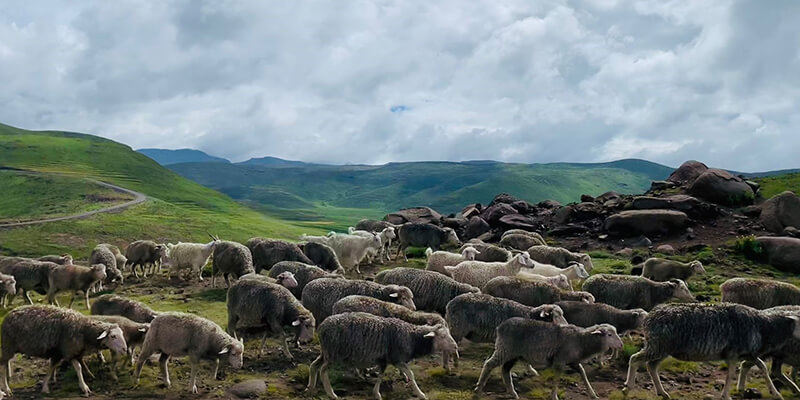Wool and mohair form the bedrock of Lesotho’s rural economy. According to IFAD, wool is the leading commodity exported by Lesotho and mohair is the fifth largest. Producers range from smallholder farmers with small flocks to breeders of large herds of superior gene-quality animals. Yet, there’s a lot of potential to develop the industry and various supply chain challenges to overcome to boost the economic resilience of smallholder wool and mohair farmers.
HELP Logistics is working with IFAD and the Lesotho National Wool and Mohair Growers Association (LNWMGA) to strengthen the sector. HELP Logistics thoroughly assessed the wool and mohair input supply chain to ensure self-sustenance of the farmer’s association business operations.
Through assessing the input delivery mechanisms of LNWMGA, we identified bottlenecks in the process and strategy recommendations for sustained growth. To improve the commodity flow of inputs, we recommended establishing long-term contracts with suppliers. Such contracts ensure the farmers’ association does not lose out on long processing lead- times and competing demand from other consumers.
To improve the financial cash flow from farmers to the association, we recommended digitising cash flow. The result was a reduction of cash reception lead times from an average of one month to an hour and a reduced risk of money loss due to improper handling. We also restructured information flows in the supply chain to remove non-value adding activities and procedures that delay information channelling and the subsequent movement of input downstream. This change will reduce information reception lead times from six weeks to less than a week.
With such strategies in place, LNWMGA will be able to operate a timely and cost-efficient supply chain that sustainably improves farmer livelihoods.
